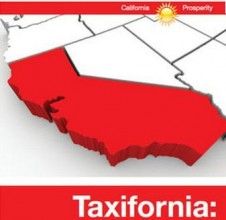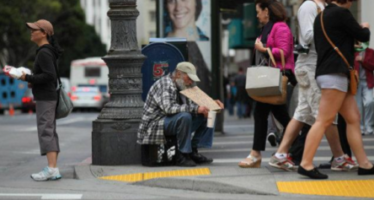‘Job-Killer’ bill would allow split-roll parcel tax

 Just days after Toyota announced plans to move its corporate headquarters to Texas, the California Senate is poised to adopt a bill that would create a split-roll parcel tax system.
Just days after Toyota announced plans to move its corporate headquarters to Texas, the California Senate is poised to adopt a bill that would create a split-roll parcel tax system.
Senate Bill 1021, introduced by state Sen. Lois Wolk, D-Davis, would allow school districts to impose different parcel tax rates on different types of property. That means commercial, industrial, residential and multifamily residential could see different tax bills for properties of equal value.
SB1021 is essentially split-roll at the local level, Jennifer Barrera, a policy advocate for the California Chamber of Commerce, explained on CalChamber’s website. It would allow school districts to pass parcel taxes just against commercial property.
Alameda County’s parcel tax overturned by courts
The bill comes in response to a controversial parcel tax adopted in Alameda County that was ultimately thrown out by the courts. In 2008, more than two-thirds of Alameda County voters approved Measure H, which imposed a $120 parcel tax on residential and small commercial properties and a substantially higher parcel tax — up to $9,500 a year — on large commercial parcels.
Last June, a unanimous state appeals court overturned the parcel tax. In Borikas v. Alameda Unified School District, the First District Court of Appeal in San Francisco found that the parcel tax violated the requirement that taxes “apply uniformly to all taxpayers or all real property within the district.”
The bill’s author said that the issue is one of local control, granting local districts the power to set different tax rates for each community’s needs.
“Under the recent court decision, school districts can no longer apply higher or lower rates to parcels based on commercial, industrial, or residential classification of the parcel,” Wolk’s office argued, according to the Senate’s legislative analysis. “SB1021 restores this needed local control by allowing school district boards to structure its tax according to local values and priorities.”
CalChamber: Unfair job-killer bill
Opponents of the bill include CalChamber, the California Business Properties Association, the California Association of Realtors, the California Grocers Association, the California Mortgage Bankers Association, the Family Winemakers of California, the Howard Jarvis Taxpayers Association, the California Manufacturers and Technology Association and the California Building Industry Association. The opponents are worried SB1021 will lead to school districts targeting parcel taxes on businesses and commercial property owners.
“At a time when California officials should be doing everything in their power to attract and retain jobs, this legislation takes exactly the opposite approach by targeting employers for even higher taxes if they stay here,” said David Kline, vice-president of the California Taxpayers Association. “This bill would allow a free-for-all parcel tax system, with no limits on what rates school districts could levy, and would create opportunities for massive tax hikes targeted at businesses of all sizes.”
The state’s business leaders and taxpayer advocates also say the bill is an end run around Proposition 13, the state’s landmark 1978 initiative that placed a cap on property taxes. With other “add-on” property taxes and fees, such as parcel taxes, Mello-Roos fees, and assessment districts, many property owners pay substantially more than Prop. 13’s base rate of 1 percent of the property’s value.
Higher rate applied to different properties
In addition to applying different tax rates to commercial and residential properties, SB1021 authorizes school districts to target individual owners for higher tax rates. Under the bill, school districts would be allowed to treat multiple parcels of real property as one parcel for tax purposes.
“Under this provision, a school district could aggregate multiple, smaller parcels owned by one owner to capture all the properties under a square footage parcel tax,” CalChamber warned in a recent legislative alert. “Additionally, a school district could impose a parcel tax based upon the use of one parcel within multiple parcels owned by the same owner, even if those other parcels are not used for the same purpose.”
Despite recent national headlines of the state’s declining business climate, the legislature is expected to pass the bill, in part because it only requires majority approval of the Legislature. Traditionally, most tax increases are subject to two-thirds approval. However, SB1021 isn’t technically a tax increase, according to the legislature’s attorneys.
However, Gov. Jerry Brown is running for re-election and likely would veto the tax increase. In his 2010 campaign, he promised that no new taxes would be imposed without voter approval. And when he campaigned for Proposition 30, which increased taxes $7 billion, he insisted it would be temporary. SB1021 would allow permanent tax increases.
Related Articles
Feds probe Nestle’s CA operations
Nestle, which has spent months weathering attacks on its water bottling practices in California, has been targeted by the federal government for investigation.
California cities struggle with implications of homeless ruling
The U.S. Supreme Court’s decision not to hear an appeal of a 9th U.S. Circuit Court of Appeal ruling limiting
Pension Iceberg Will Sink State Budget
JUNE 30, 2011 By WAYNE LUSVARDI Imagine you’re a passenger on the ill-fated RMS Titanic luxury liner on its 1912




